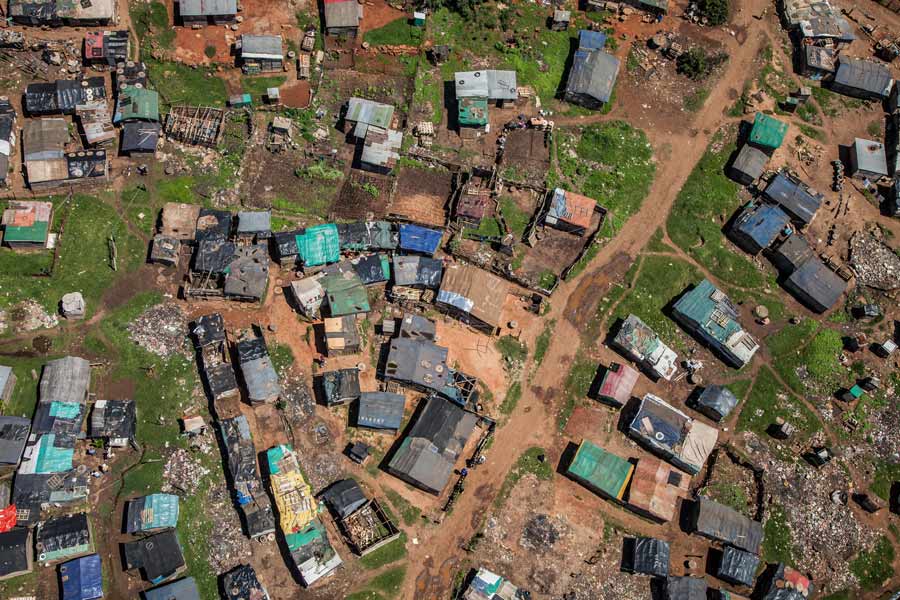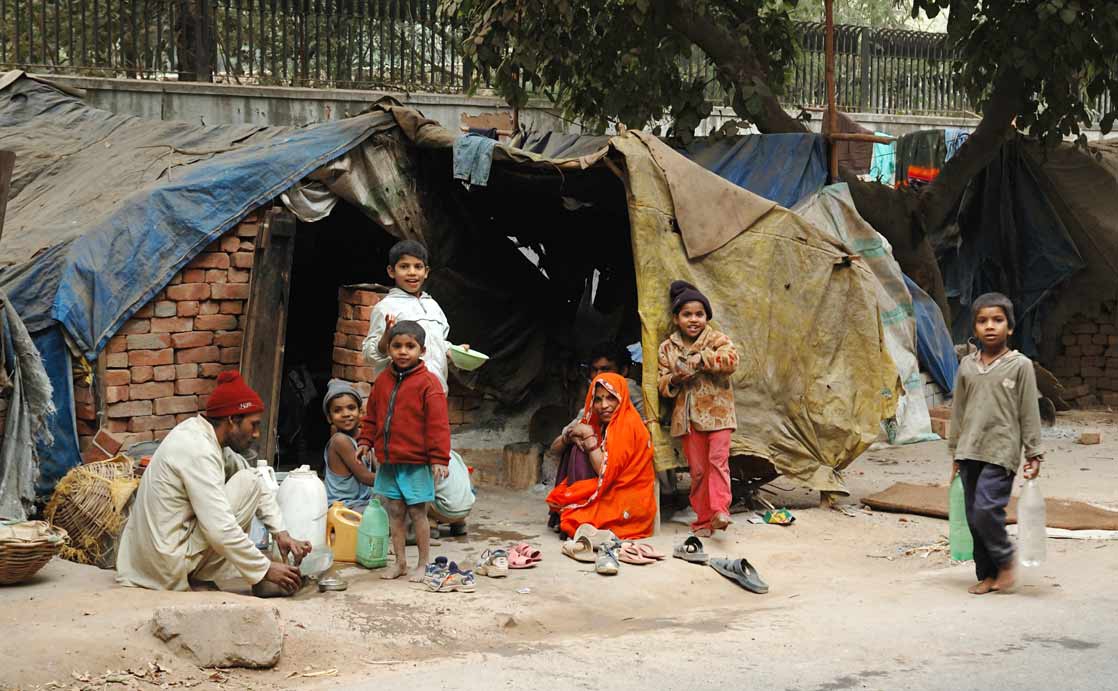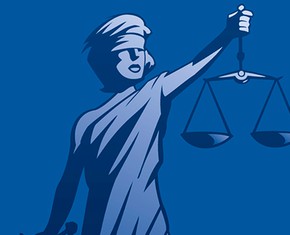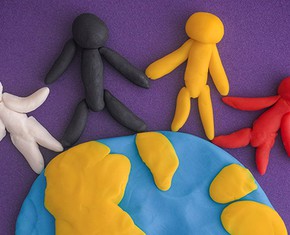The views expressed in our content reflect individual perspectives and do not represent the authoritative views of the Baha'i Faith.
If we truly want a poverty-free future for humanity, the Baha’i teachings say, that possibility inextricably links to the establishment of justice.
This unique twin teaching connects the eradication of poverty and the establishment of justice together as an inseparable pair of complimentary Baha’i social principles:
Glory and honour for man are not to be found in fortunes and riches, least of all in those which have been unlawfully amassed through extortion, embezzlement and corruption practised at the expense of an exploited populace. Supreme honour, nobility and greatness in the human world, and true felicity in this life and the life to come – all consist in equity and uprightness, sanctity and detachment. If a man would seek distinction, he should suffice himself with a frugal provision, seek to better the lot of the poor of the realm, choose the way of justice and fair-mindedness, and tread the path of high-spirited service. – Abdu’l-Baha, from a tablet translated from the Persian.
… there must be a solution of social problems and economic questions based on justice to all … – Abdu’l-Baha, Star of the West, Volume 6, p. 315.
The government of the countries should conform to the Divine Law which gives equal justice to all. This is the only way in which the deplorable superfluity of great wealth and miserable, demoralizing, degrading poverty can be abolished. – Abdu’l-Baha, Paris Talks
This core principle of the close relationship between justice and the elimination of poverty come directly from the prophet and founder of the Baha’i Faith, Baha’u’llah. When Baha’u’llah wrote his Tablets to the Kings and Rulers of the world from exile in Adrianople in the mid-1800’s, he told those world leaders that God held them primarily responsible for the lamentable conditions of their societies.
In those unprecedented letters from an exile and a prisoner to the world’s rulers, Baha’u’llah censured and condemned the greed, warfare and oppression they perpetrated; and instructed those with civil authority and power to institute a reign of justice – which Baha’u’llah conditioned on reducing their armaments, ceasing their fighting of needless wars, and stopping the economic burdens of laying their excessive militarism on the impoverished people they ruled:
God hath committed into your hands the reins of the government of the people, that ye may rule with justice over them, safeguard the rights of the downtrodden, and punish the wrongdoers. If ye neglect the duty prescribed unto you by God in His Book, your names shall be numbered with those of the unjust in His sight. Grievous, indeed, will be your error. – Baha’u’llah, The Summons of the Lord of Hosts
This first-ever warning from a prophet of God and founder of a major world religion presented a profound challenge to those kings and rulers:
If ye stay not the hand of the oppressor, if ye fail to safeguard the rights of the downtrodden, what right have ye then to vaunt yourselves among men? What is it of which ye can rightly boast? Is it on your food and your drink that ye pride yourselves, on the riches ye lay up in your treasuries, on the diversity and the cost of the ornaments with which ye deck yourselves? If true glory were to consist in the possession of such perishable things, then the earth on which ye walk must needs vaunt itself over you, because it supplieth you, and bestoweth upon you, these very things, by the decree of the Almighty. – Ibid.
That essential question of justice and its establishment preceded Baha’u’llah’s uncompromising commands to the world’s rulers:
O Kings of the earth! We see you increasing every year your expenditures, and laying the burden thereof on your subjects. This, verily, is wholly and grossly unjust. Fear the sighs and tears of this Wronged One, and lay not excessive burdens on your peoples. Do not rob them to rear palaces for yourselves; nay rather choose for them that which ye choose for yourselves. …
O Rulers of the earth! Be reconciled among yourselves, that ye may need no more armaments save in a measure to safeguard your territories and dominions. Beware lest ye disregard the counsel of the All-Knowing, the Faithful. …
Be united, O Kings of the earth, for thereby will the tempest of discord be stilled amongst you, and your people find rest, if ye be of them that comprehend. – Ibid.
When this international reconciliation occurs – and the Baha’i teachings view it as an inevitable, absolute global necessity, as the final stage in the ongoing maturation of the human race – it can dramatically reduce the world’s current level of military spending. Estimated in 2018 at $1.8 trillion US dollars per year, this enormous expenditure, by itself, could completely eradicate the world’s hunger and poverty and educate every child on Earth.
If we reduced that massive expenditure on armies and armaments, we could also safely house every human being.

Imagine it – a world finally free of fighting, a world where all children go to school, a world without grinding poverty and homelessness:
Knowledge is not enough; we hope by the Love of God we shall put it into practice. A spiritual universal Force is needed for this. … To know that it is possible to reach a state of perfection, is good; to march forward on the path is better. We know that to help the poor and to be merciful is good and pleases God, but knowledge alone does not feed the starving man, nor can the poor be warmed by knowledge or words in the bitter winter; we must give the practical help of Loving-kindness. – Abdu’l-Baha, Abdu’l-Baha in London
Baha’is all around the world work toward that vision of the future of humanity every day.
















Comments
Sign in or create an account
Continue with Googleor